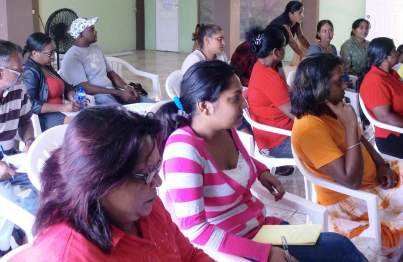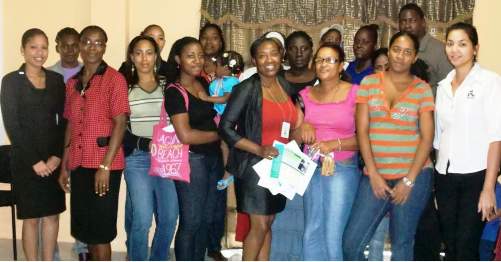The potential project which will be spearheaded by NIHERST, aims to introduce renewable energy mechanisms (E.g. solar power and biomass gas) and sustainable practices/technologies such as rainwater harvesting to the communities of Moruga and Barrackpore in southern Trinidad. A participatory approach is being taken in defining the project as the ideas and needs of the community are being incorporated into the project’s development.
In Moruga, GWP-C and NIHERST representatives met with the St. Mary’s Organisation of Women Enterprise (SOWERS) who provided feedback on the idea of a renewable energy project for the community. They also spoke about their own ideas on a project they saw would create employment that is sustainable in the community.
Construction and agriculture were identified as the major income earners by the Women’s Group from Moruga. The group expressed interest in a sustainable agricultural project and the use of rainwater harvesting as they explained that they live in a water-scarce community.
In the Barrackpore area, GWP-C and NIHERST representatives held discussions with the Strange Village Women’s Group who explained that agriculture was the core livelihood within the community. Like the stakeholders in Moruga, community members provided feedback on the potential renewable energy project and provided their ideas on a possible sustainable venture.

The community members were receptive to the idea of a renewable energy project as well as the use of rainwater harvesting systems for the area. The dialogues in both Moruga and Barrackpore presented an inimitable opportunity for the community to be directly involved in the planning and development of the project.
GWP-C was able to share information with the members of both Women’s Groups on rainwater harvesting in terms of the design of a typical system and information on protecting the water quality. GWP-C also had the opportunity to give all members of the Women’s Groups, information produced by Global Water Partnership (GWP) on women’s central role in the provision, management and safeguarding of water.
